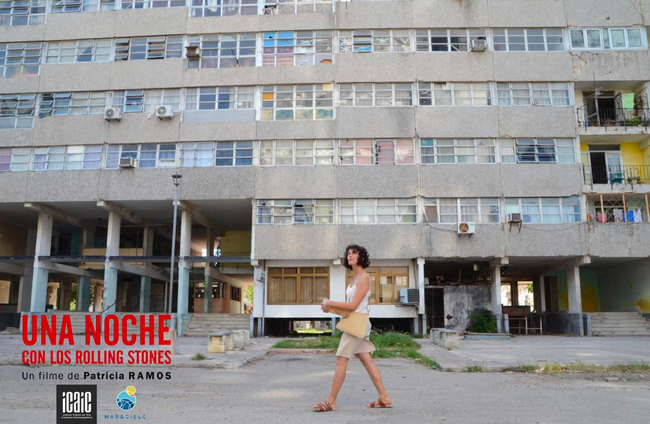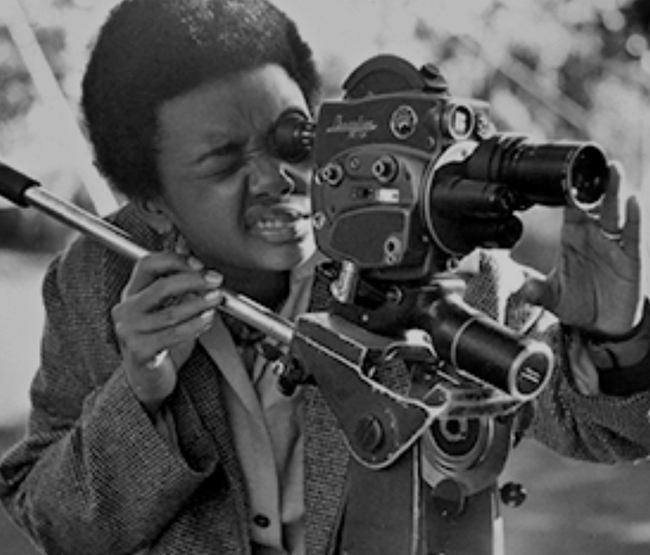Cuban women’s struggles on screen and behind the camera
Campaign News | Friday, 7 March 2025

Cuban women won many rights and shaped future Cuban society through their participation in the armed struggle which led to the overthrow of Batista in 1959. Their “revolution within the revolution” sought to reverse the inequalities which existed in the country. Spearheading this transformation was the Federation of Cuban Women (FMC) founded by Vilma Espin in 1960.
Women who made up only 17% of the labour force before 1959 have gone on to make up the majority of judges, lawyers, scientists, doctors and professionals. The FMC pioneered sexual and reproductive rights and Cuba became the first Latin American country to legalise abortion in 1965, which together with contraception are free. Cuban parents receive generous maternity and parental leave, with both parents entitled to 40 weeks leave on 60 % of pay, once the mother has completed 4.5 months on full pay.
The FMC can propose and is consulted on legislation and how it will impact on women. Since 1997 all government ministries have a responsibility to ensure their policies contribute to the advancement of the female population and must give annual accounts on what they have done to achieve this. It ranks second in the world for number of women MPs at 55.74%.
Despite these advances the FMC is first to point out the challenges still faced, not least the enduring machismo which could not be legislated out of existence and is “embedded in Cuban families,” according to FMC International Officer Dania Rodriguez.
These themes and ongoing struggle are examined in films which will be shown on this month as part of the Screen Cuba: Films to Change the World festival.
On International Women’s Day on 8 March, Aberystwyth Arts Centre screens Pastor Vega’s groundbreaking Portrait of Teresa which sparked a widespread debate throughout Cuban society when it was released in 1979. A crisis between husband and wife in a working class marriage is the focus for a dramatic examination of the changes generated by the Revolution as many more women entered the workforce. This film sparked a widespread debate throughout Cuban society. The Family Code (1975) had declared household chores and childcare should be shared equally. The film depicts Teresa’s exhausting double shift and when she takes on extra duties as a factory union delegate, her husband berates her for neglecting her family. Yet she persists in her quest for control over her life. At the time a very controversial film, it showed the Revolution was an ongoing struggle against entrenched attitudes for everyone. It also marked a turning point in filmmaking, shifting away from the fast moving close-ups of the 1960s to more documentary-style shots. You can also catch this film in Pontypridd YMa on Wednesday 18 March, The Garden Cinema London on Thursday 19 March, Oxford on Monday 24 March and Nottingham on Sunday 30 March.
A Night with The Rolling Stones (2023) also examines the dilemmas faced by a female character, but in very different circumstances, and (spoiler alert) not about the Rolling Stones. Top contemporary female filmmaker Patricia Ramos directed and wrote the script for this film, her second feature, set in 2016 Havana. It was a time when Cuba featured regularly in the international media with Obama’s visit and the famous Rolling Stones concert. Rita navigates troublesome relationships with her teenage son who wants to leave Cuba, her aging mother, her married lover, and her lifelong friend who has cancer. On the eve of the concert she makes decisions and hopes that something interesting is about to happen. A tender film about what has gone and what remains. Saturday 29 March at The Garden Cinema London and Wednesday 2 April in Aberystwyth.
The Isle of Pines Trilogy (1968-69) is a set of social documentaries by Sara Gómez, Cuba’s first female and first Black female film director. She was committed to changing society by creating a new cinematic language that addressed the intersections of race, class and gender. The Isle of Pines (later-renamed the Isle of Youth) during the 1960s became the site of a re-education programme aimed at teenagers and young adults not in education or work, to encourage them to participate in achieving the goals of the revolution. Gómez becomes more than an interviewer, winning their trust, challenging them, and exploring their changing social conditions and emotions, with respect for their voices to be heard. 17 March at Birkbeck University Cinema in London.
Screen Cuba is delighted to host two Cuban guests, Gladys González Martínez and Silvia Padrón Durán, to participate in Q&As and panel discussions, as well as more informal chat with audiences after the screenings.
Tickets are now on sale for London screenings at The Garden Cinema and ICA London, Aberystwyth Arts Centre, The YMa Moondance Theatre Pontypridd, Oxford UPP and Nottingham Broadway cinema. For full details on all films and to book tickets visit www.screencuba.uk

Sara Gomez

Portrait of Teresa






